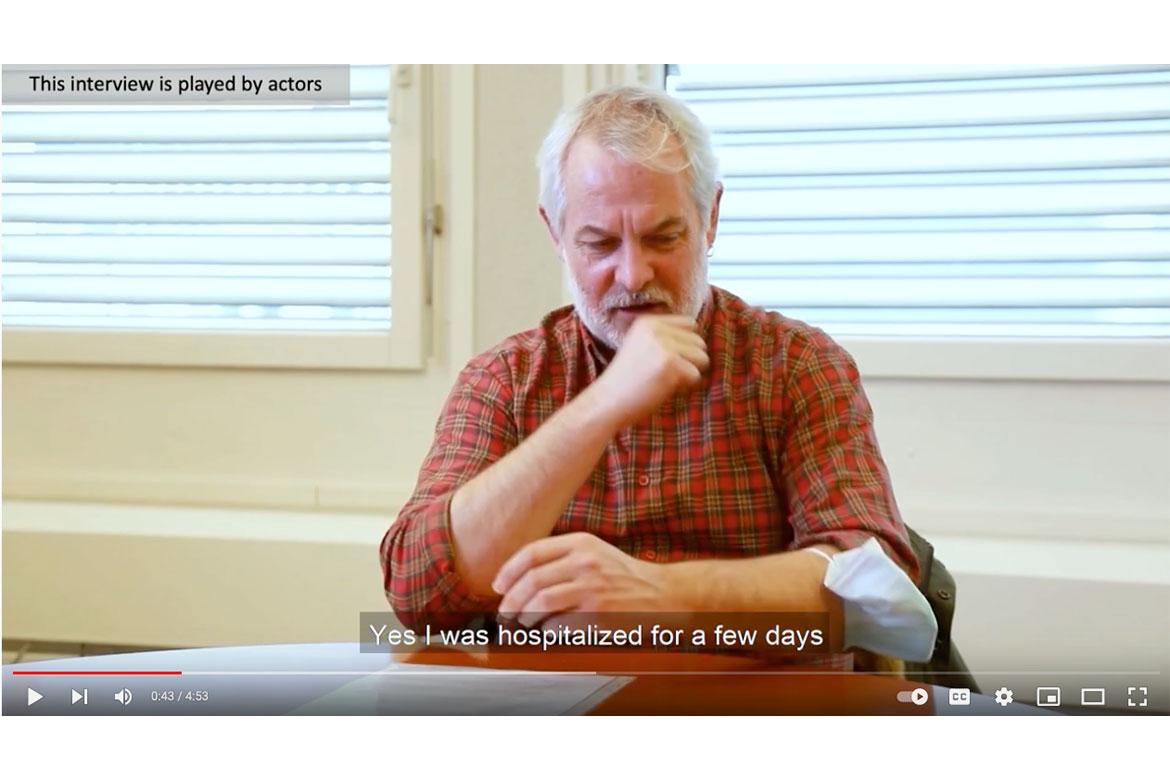Anosognosia: When one's own impairments are not perceived

Some affected individuals do not recognise their own cognitive deficits. This allows to distinguish neuropsychological phenotypes after Covid-19 infection.
In addition to the familiar symptoms of Covid-19, such as fever or a sore throat and cough, neuropsychological symptoms may also occur in the acute phase up to several weeks after infection. Some individuals are not even aware of the occurrence of cognitive deficits. This phenomenon is known in neuropsychology as anosognosia and describes the lack of awareness of cognitive impairment, such as memory impairment. Whether such anosognosia is related to the severity of acute disease and may even serve as a distinguishing feature for different phenotypes of long Covid was investigated by Julie Péron's research team at the University of Geneva.
The effects of Covid-19 infection on the central nervous system (CNS) include modified metabolism in various brain areas and decreased connectivity in signalling pathways that are often involved in the process of self-awareness.
The study included 102 long-Covid patients who were still symptomatic 6 to 8 months after infection. Individuals whose illness took a severe or moderately severe course were significantly more often affected by anosognosia in the form of failure to recognise memory impairment. They more often showed neuropsychological deficits and performed worse in cognitive and olfactory ability tests compared to those without anosognosia.
In addition, people with anosognosia were less likely to complain about psychiatric symptoms such as depression, anxiety disorders and stress, or other symptoms such as fatigue and breathing difficulties. Anosognosia correlated significantly with higher perceived quality of life. Through imaging techniques, the researchers found evidence of reduced functional connectivity between the hippocampus, ventral precentral cortex and ventromedial prefrontal cortex, subregions of the brain involved in self-awareness and control.
The results suggest that anosognosia associated with lower functional connectivity in the brain may be a distinguishing feature of different neuropsychological expressions of long Covid. In addition, the study revealed that people who have symptoms but are unaware of their occurrence due to anosognosia are underreported. This underscores the importance of including ostensibly asymptomatic patients in long Covid studies. The results were published in the journal Brain Communications.
Further research by the team on the consequences of falling ill with Covid-19 resulted in a recent article in the journal Clinical Translational Neuroscience. The prevalence of psychiatric symptoms was relatively high in all three groups totalling 45 subjects with severe, moderate or mild cases. The group with severe infection performed worse in episodic long-term memory tests and had greater anosognosia. Individuals with a moderate course had poorer emotion recognition and persistent olfactory impairments. Individuals with mild infection were more stressed, anxious and depressed. The study supports the hypothesis that SARS-CoV-2 attacks the central nervous system – particularly the limbic system – as well as the notion that there are distinct neuropsychological phenotypes.
Links
- NRP 78 YouTube Channel – Video Abstract
- Voruz P, Cionca A, et. al. Functional connectivity underlying cognitive and psychiatric symptoms in post-COVID-19 syndrome: is anosognosia a key determinant?, Brain Communications, Volume 4, Issue 2 (2022).
- Voruz, P, Allali G, et. al. Long COVID Neuropsychological Deficits after Severe, Moderate, or Mild Infection. Clin. Transl. Neurosci. 2022, 6, 9.
